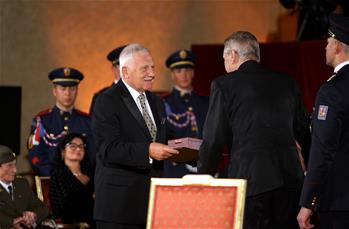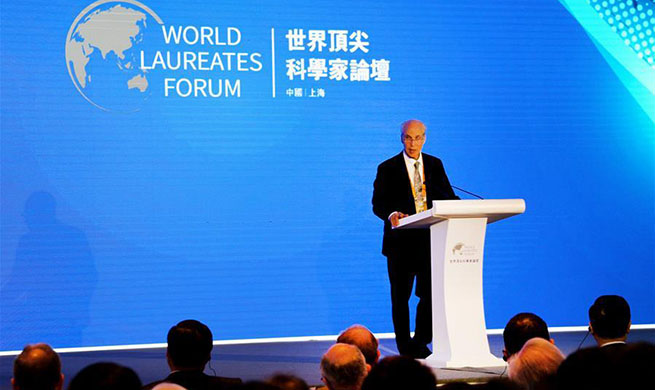HARARE, Oct. 29 (Xinhua) -- The Reserve Bank of Zimbabwe (RBZ) said Tuesday it will introduce a new currency in the next two weeks as it seeks to plug cash shortages in the economy.
The new currency, which will circulate alongside the bond notes and coins that were introduced in 2016, will consist of 2 dollar coins and 5 dollar notes, RBZ Governor John Mangudya said.
He told a press briefing that the new currency will be introduced gradually to avoid fueling inflation, adding that the new Zimbabwe dollar will trade at par with the bond notes and coins.
"This additional cash injection will be carried out through the non-inflationary exchange of Real Time Gross Settlement (RTGS) money for physical cash," he said.
Currently, Zimbabwe is using electronic money known as RTGS, bond notes and coins after it banned the U.S. dollar in June this year which had been the trading currency alongside eight other currencies since 2009.
Zimbabwe has grappled with cash challenges for years, resulting in some businesses charging premiums for cash.
To try and alleviate the shortage of cash and change, the central bank introduced bond notes and coins in 2016 that are supported by exports, but the money has not been enough to meet demand.
Mangudya observed that the current proportion of cash to broad money supply in the country was very low at 4 percent, compared to regional and international levels of 10-15 percent.
The RBZ governor reiterated that Zimbabwe's economy was projected to contract by 6.5 percent in 2019 due to twin climate shocks of drought and Cyclone Idai that devastated agriculture output.
The bank was concerned with continued inflationary pressures in the economy, and would put in place robust measures to stabilize the exchange rate, boost confidence and curb reserve money which grew by 80 percent in the first eight months of the year, Mangudya said.
He said the central bank was targeting a monthly inflation rate of between 10 - 12 percent by year end, from the Sept. 2019 rate of 17.72 percent.
The central bank was also targeting to reduce reserve money growth by 50 percent by year end, he said.
Measures will be taken to strengthen the inter-bank exchange rate market that was introduced in February this year as part of currency reforms, where some 1.3 billion U.S. dollars has been traded to date, Mangudya said.













